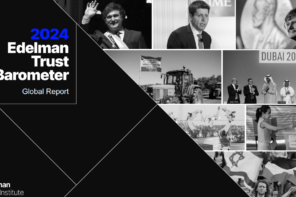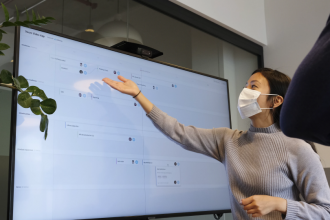
The Pursuit of Excellence and Innovation
What Is Excellence?
Criticism, like rain, should be gentle enough to nourish a man’s growth without destroying his roots.”– Frank A. Clark.
Excellence is demonstrated by an organisation that is able to support professional growth and build insight through harnessing a continuous feedback culture. This feedback culture involves active communication both internally, between employer and employees, and externally, between an organisation and its clientele.
Annual performance reviews, as the sole method of employee evaluation, have become outdated and have proven ineffective. Instead, ongoing feedback loops are created to cultivate a regular feedback-rich environment, opening the door to healthy communication, trust and unity.
How To Nurture Feedback
1. Set up regular weekly/biweekly meetings.
2. Incorporate a hybrid meeting system of both team and one-on-one meetings with each team member.
3. Always maintain a positive and welcoming energy when discussing feedback
4. Introduce regular anonymous feedback forms
5. Set aside time to train both managers and employees on how to give and receive effective feedback.
Importantly, feedback is a two-way street. You must be able to not only receive informative feedback but also give it. A study by Gallup showed that 80% of employees who say they have received meaningful feedback in the past week became fully engaged in their work. However, they also discovered that a mere 16% of 15,000 employees had said that the last conversation they had with their manager was actually meaningful.
Although meaningful feedback is beneficial in optimising employee engagement, managers may need to gain an understanding of how to provide feedback that contains value to employees.
How To Give Meaningful Feedback:
It helps in creating a balanced and satisfying approach that not only nourishes growth but also fosters a positive relationship with the team member receiving the feedback” – Ameya Warty, Talent Director at Curzon PR.
- Focus on Specifics: Instead of providing vague statements (e.g. “well done”), offer practical examples of what was done well and suggest clear areas for improvement.
- Timely Feedback: Feedback proves most effective when given closest to the time of the event.
- Positive Reinforcement: Encourage and reward good work and strengths. Remember, feedback is not just about highlighting weaknesses.
- Sandwich Technique: Here at Curzon PR, we employ a technique that layers constructive criticism between two pieces of praise.
What is Innovation?
Innovation is the lifeblood of a thriving business.”– Michael Dell
Business innovation entails the generation of novel ideas or the reimagining of existing products, services, business models, and concepts through fresh perspectives and approaches.
Organisations that are resistant to the adoption of new ideas can become obsolete, and thus, being open to innovative ideas has become critical to adjusting to the changing needs of the market.
How To Foster Innovation In The Workplace:
- Encourage curiosity, risk-taking and experimentation. Celebrate both successes and failures as learning opportunities.
- Allocate time, budget and resources specifically towards exploring new ideas.
- Encourage collaboration amongst different departments to allow for diverse perspectives.
- Reward and recognise innovation.
- Offer training programs or workshops to enhance creative thinking skills.
Importantly, innovation now also involves an organisation’s ability to detect and embrace paradigm shifts, such as digital technology. As the introduction of new technology continues to disrupt industries, organisations must adapt or risk falling behind.
Notable technological shifts include the adoption of cloud computing, which has enabled businesses to access data and applications worldwide, and the surge of big data, which allows companies to analyse complex data sets to discover market trends, insights, and patterns.
If organisations can learn and utilise modern technologies, they will not only be able to work more efficiently but also appear more desirable to clients and future talent. More recently, the rise of artificial intelligence (AI) resulted in a technological revolution, with many businesses employing AI in methods such as improving efficiency and decreasing costs. Forbes Advisor surveyed 600 business owners using or planning to incorporate AI into their businesses. The study found that almost all (97%) of business owners believed ChatGPT would help their business.
Of those 600 business owners, 46% stated that they use AI for customer relationship management, and 35% stated they use AI for content production. Importantly, this study was conducted almost a year ago, and AI is still very much in its development stages, with its full potential still unknown. It is safe to say those figures have likely risen since.
In his TED Talk, Andrew Ng explains how any business in any industry, big or small, can train AI to provide data to them, ranging from sales patterns to quality-checking products. He proves how effortless it can be for any business to use AI as a tool for decreasing time spent on data analysis tasks. This is just one of many examples of how AI can be used for businesses.
Why Excellence and Innovation Are Vital To Public Relations (PR):
Public relations is a notoriously fast-paced industry. In order to stay in competition, agencies must prioritise excellence and innovation.
Through demonstrating excellence and emphasising regular and informative feedback, agencies are able to establish healthy relationships internally, amongst the team, and externally, with clients and stakeholders.
Equally, innovation, the creation of fresh, unique concepts, and the implementation of new technologies, such as generative AI, allow agencies to analyse and fill gaps in the global market.
To read more about how generative AI is transforming the public relations industry, click here. Conclusively, combined together, excellence and innovation are proving to be the cornerstones of effective PR.
Curzon PR is a London-based PR firm working with clients globally. If you have any questions, please feel free to contact our Business Development Team info@curzonpr.com






Follow us